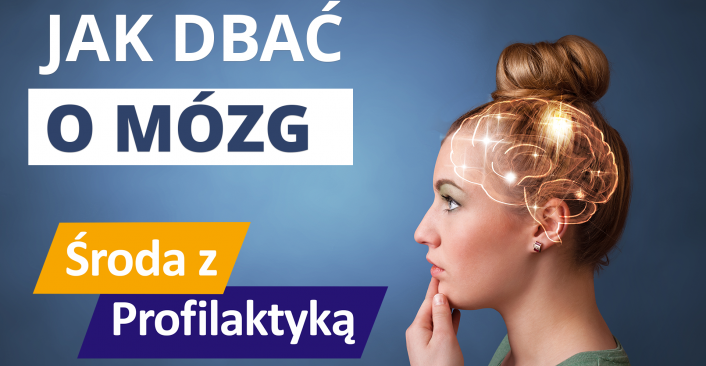The brain needs constant stimulation to reach its full potential. It requires us not only to train ourselves mentally, but also physically, whatever our age. How do we take care of the brain so that it works properly? It is worth remembering a few rules. We would like to remind you of these as part of the forthcoming "Wednesdays with Prevention" - educational action by the National Health Fund.
Active for the brain
Physical activity is one of the most effective and at the same time one of the simplest preventive actions a person can take to care for their health. The changes that occur under the influence of systematic exercise are comprehensive and affect all systems in the human body.
Physical exercise relieves tension and stress, influences higher self-esteem of the individual. It has a positive effect on an individual's general well-being, among other things:
- improves quality of sleep
- counteracts depression
- prevents depressed mood
- increases resourcefulness and self-confidence.
Exercises of an aerobic nature, i.e. so-called aerobic exercises (swimming, running, cycling, long walks, dancing, aerobics, Nordic walking) have an important impact on the proper functioning of the brain.
From sitting to health
The National Health Fund recommends a prevention and training programme 8 Weeks to Health - is available free of charge on the YouTube NFZ Academy or in the app myIKP. Together with trainers, a doctor, a physiotherapist and a psychologist, we accompany willing participants on a two-month training path to better health.
A little something to strengthen the condition of the mind
With the right diet, it is easy to improve memory and stimulate the brain to work harder.
It is worth taking care of the meals, among other things:
- with plenty of vegetables rich in vitamin C and A, including: kale, broccoli, lettuces, spinach and kohlrabi
- almonds and nuts, as a source of healthy fats and antioxidants, and fish.
Reach for ready-made recipes on the NFZ Diet portal https://diety.nfz.gov.pl
Living with Alzheimer's
Brain diseases can affect anyone, regardless of age. Children are often diagnosed with epilepsy. Adolescents and adults often struggle with eating disorders or depression. Adults may develop, for example, Alzheimer's disease or Parkinson's disease.
The risk of developing Alzheimer's increases with age and is higher for women and people with hypertension, hyperlipidaemia, ischaemic heart disease or type 2 diabetes.
- What might be the first signs of this disease?
- Can brain changes be inhibited?
- How to support the sick person?
On the causes of the disease and treatment, he saysDr Dagmara Wiewiórkowska-Garczewska, geriatrician, internist at the Geriatric Care Centre of the Pomeranian Rheumatology Centre. See the expert statement on the NFZ Academy YouTube channel.
The National Health Fund, in cooperation with the Polish Association for Help to Persons with Alzheimer's Disease, has published a guide for caregivers. Alzheimer's care.
A page from the calendar
 ️ 15 March marks World Alzheimer's Day
️ 15 March marks World Alzheimer's Day
 ️ 18 March is European Brain Day
️ 18 March is European Brain Day

